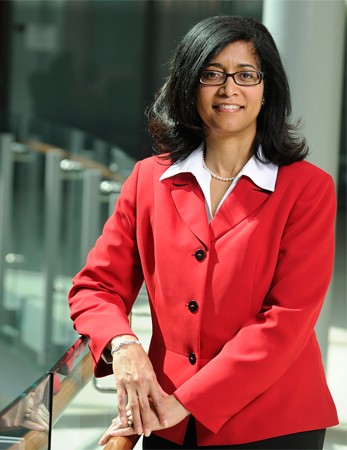1. What's at the top of your to-do list?
Bringing together multiple perspectives, backgrounds, cultures, and experiences—that's vital to driving innovation and remaining relevant to the needs of an ever-changing population. Incentivizing diversity and inclusion efforts and making individuals accountable are crucial to ensure that any diversity initiative is successful.

2. What keeps you up at night?
I want to be sure that I am being an effective advocate for diversity, and that I am avoiding well-intentioned efforts that could further isolate or stigmatize any group. Diversity is about taking proactive steps to making things work for everyone, not just righting wrongs for some groups or communities.
3. What's in store 10 years from now?
We are poised to become a national example of the benefits of embracing diversity. We can make Hopkins more attractive to individuals from all walks of life by becoming a more-inclusive institution. This requires embracing all aspects of diversity—underrepresented groups of diverse racial, ethnic, and socioeconomic backgrounds but also LGBT persons; people with disabilities, differing perspectives and viewpoints; and women. If we do not ensure the success of all these groups, then we will continue to see disparities in education, training, leadership, and management positions that will stifle our growth and hinder our ability to fully capitalize on the advantages that diversity brings.
4. Tell me something I don't know about Johns Hopkins
Although Johns Hopkins has had African-American students since Kelly Miller enrolled in 1887 to pursue graduate studies in mathematics, the first medical students of African descent didn't receive their degrees from Johns Hopkins until 1967; James F. Nabwangu and Robert L. Gamble both became neurosurgeons.
Posted in University News







